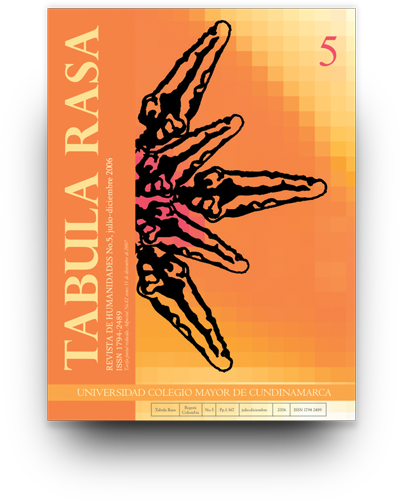Between Geography and IR
Entre la geografía y las relaciones internacionales
Show authors biography
The roles of territory and borders in the genesis of conflicts have come under increased scrutiny in international relations and political geography over the past ten years. In this paper I want to focus on three intellectual trends that indicate a rapprochement between scholars in both fields over the «way forward» beyond a number of the previously more stereotyped positions concerning the persisting relevance of territory and borders to world politics. One of these is an increased resistance to and articulation of alternatives to a simple state-centrism. A second is an emphasis on the persistence/revival of geographical imaginations at work in world politics even as particular historic examples of these associated, for example, with specific geopolitical configurations (such as those of the Cold War) are in abeyance. Finally, an important trend is a reorienting of the discussion about the spatiality of world politics away from the either/or of territory versus networks and flows to an appreciation of their mutual effects.
Article visits 314 | PDF visits 197
Downloads
Agnew, John. 2005a. “Sovereignty regimes: territoriality and state authority in contemporary world politics,” Annals of the Association of American Geographers, 95:437-61.
Agnew, John. 2005. Hegemony: The New Shape of Global Power, Philadelphia: Temple University Press.
Bell, Daniel. 2003. “The Making and Unmaking of Boundaries: A Contemporary Confucian Perspective”, en Allen Buchanan y Margaret Moore (eds.) States, Nations, and Borders: The Ethics of Making Boundaries Cambridge: Cambridge University Press.
Coleman, Mathew y John Agnew. 2006. “The Problem with Empire”, en Stuart Elden y Jeremy Crampton (eds.) Foucault and Geography Aldershot, Inglaterra: Ashgate.
Corbridge, Stuart E. 2002. “Cartographies of Loathing and Desire: The Bharatiya Janata Party, the Bomb, and the Political Spaces of Hindu Nationalism”, en Yale H. Ferguson y R.J. Barry Jones (eds.) Political Space: Frontiers of Change and Governance in a Globalizing World Albany NY: SUNY Press.
Daniel, Jean. 2005. The Jewish Prison: A Rebellious Meditation on the State of Judaism. Traducido del francés por Charlotte Mandell. Nueva York: Melville House.
El-Fadl, Khaled Abou. 2003. “The Unbounded Law of God and Territorial Boundaries”, en Allen Buchanan y Margaret Moore (eds.) States, Nations, and Borders: The Ethics of Making Boundaries Cambridge: Cambridge University Press.
Evans, Michael D. 2004. The American Prophecies: Ancient Scriptures Reveal our Nation’s Future Nueva York: Time Warner.
Foucault, Michel. 1982. “The Subject and Power”, en Michel Foucault:Beyond Structuralism and Hermeneutics. H. L. Dreyfus y P. Rabinow (eds.) Chicago, University of Chicago Press.
Foucault, Michel. 1980. “Two Lectures”, en Power/Knowledge: Selected Interviews and Other Writings 1972-1977. C. Gordon (ed.) Nueva York: Pantheon Books.
Geopolitics, 11, 2 (2006), “Religion and Geopolitics” (Edición especial).
Gopnik, Adam. 2005. “Prisionero de Narnia: cómo escapó C.S. Lewis”. The New Yorker, 21 de noviembre.
Hardt, Michael y Antonio Negri, Empire Cambridge MA: Harvard University Press.
Hevia, J.L. 1995. Cherishing Men from Afar: Qing Guest Ritual and the Macartney Embassy of 1793 Durham NC: Duke University Press.
Kahler, Miles y David A. Lake (eds.). 2003. Governance in the Global Economy: Political Authority in Transition, Princeton NJ: Princeton University Press.
Ling, Lily H.M. 2003. “Borders of Our Minds: Territories, Boundaries, and Power in the Confucian Tradition”, en Allen Buchanan y Margaret Moore (eds.) States, Nations, and Borders: The Ethics of Making Boundaries Cambridge: Cambridge University Press.
Lorberbaum, Menachem. 2003. “Making and Unmaking the Boundaries of Holy Land”, en Allen Buchanan y Margaret Moore (eds.) States, Nations, and Borders: The Ethics of Making Boundaries Cambridge: Cambridge University Press.
Statman, Daniel. 2003. “Man-Made Boundaries and Man-Made Holiness in the Jewish Tradition” en Allen Buchanan y Margaret Moore (eds.) States, Nations, and Borders:The Ethics of Making Boundaries Cambridge: Cambridge University Press.




